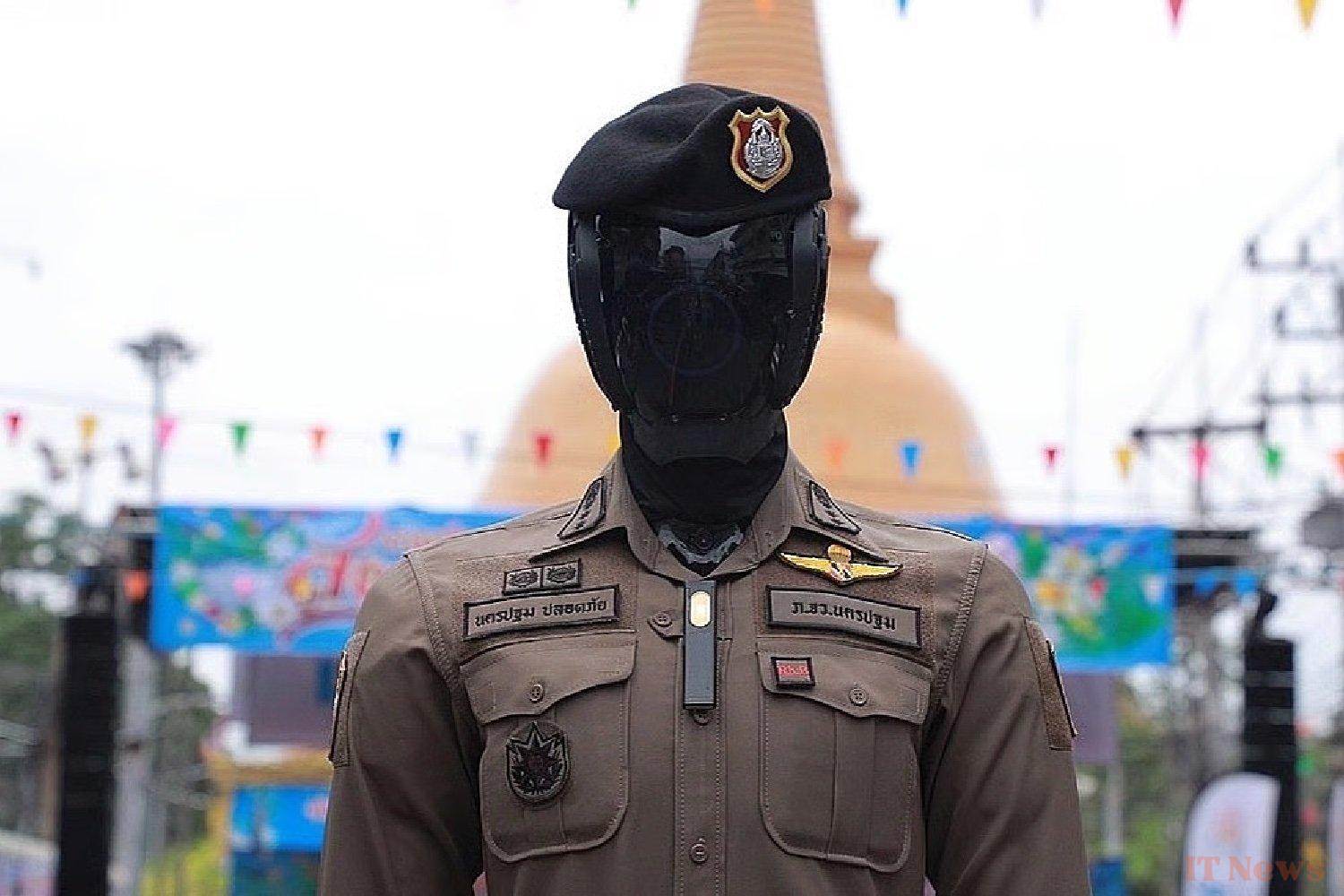The Thai police took advantage of the Songkran festival to unveil a strange new colleague: an artificial intelligence police robot, dubbed "AI Police Cyborg 1.0." Behind this long name, a static machine mounted on wheels, with a very science-fiction look, supposed to reinforce security during the festivities.
High-tech security or simple gadget?
Equipped with 360-degree wide-angle cameras, the robot is not just a pretty technological trinket. It is connected to the surveillance cameras and drones present on the site, to centralize and analyze everything live. If a fight breaks out, if an individual pulls a knife, or if a person wanted by the police is spotted, the robot is supposed to raise the alarm immediately.
Thanks to its facial recognition tools, it can spot a face in the crowd and associate it with a profile. It's also capable of differentiating a serious threat from a water pistol—a crucial point during Songkran, when water jets are everywhere.
Developed by the Nakhon Pathom provincial police, the provincial police region 7, and the local municipality, the AI Police Cyborg 1.0 is connected in real time to the provincial command center. But beware, despite all this equipment, it remains stuck at its station: no autonomous patrols, no action-movie-style arrests. All it can do is monitor and send alerts to human officers. A connected camera, so to speak…
With this first police robot, Thailand is following a regional trend: a little earlier, the country also launched a biometric system to track migrant workers. The idea is to modernize surveillance, with AI as support. But inevitably, not everyone likes it. NGOs are sounding the alarm: between increased surveillance, the use of spy software against non-governmental organizations, and a still-shaky legal framework (the draft royal decree on AI is pending), the country is moving faster on technology than on protecting freedoms.
And then, even on the practical side, some are asking questions. Granted, the robot is capable of spotting suspicious behavior. But since it can't move or interact, its usefulness in a critical situation remains to be proven. Today, it's difficult to know if AI Police Cyborg 1.0 is a genuine security tool, a technological showcase, or a silly marketing ploy.
Meanwhile, other countries like China are already deploying mobile police robots capable of interacting with citizens. Thailand, for its part, is still at the stage of ultra-connected fixed cameras. The robot looks good on a festival site, impressing passers-by... but its true role in public safety will still have to be proven!



0 Comments